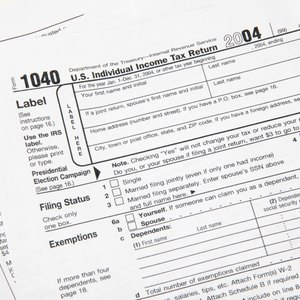
What happens when a loved one passes away? Who is responsible for filing taxes for a deceased person? Could you get a tax refund for a deceased person? And can you claim a deceased dependent on your tax returns?
It’s unfortunate when you find yourself asking such questions because it means you have lost a loved one. But you need to find the answers you seek since your marital status and the number of dependents you claim all enable you to decrease your tax liability and get back much-needed money after a tragedy. For those reasons, it is important for you to know how taxes are filed with respect to decedents.
How to File Taxes for the Deceased as a Representative
You can file taxes on behalf of the deceased in several ways. You can do so as a survivor, administrator or executor. and the procedures will vary depending on who you are.
Generally, if someone dies and they did not file their taxes, you could do so on their behalf in a manner similar to what they would have done. That means their individual tax return would include all their income until their death.
Also, the decedent’s tax returns would include all deductions and credits they would have claimed if they were alive. For example, if someone would have benefited from a Child Tax Credit, you can claim it on their behalf.
If you find out that the decedent had not paid taxes for the previous years, you can do so on their behalf. And if they are due for a refund, you can use Form 1310 Statement of Person Claiming Refund Due a Deceased Taxpayer to claim that refund. However, the form is reserved for those who are neither official personal representatives nor spouses of the deceased.
As a representative, you cannot claim the deceased on their tax return since personal exemptions were eliminated. However, you can claim dependents on their behalf. So, take note of that.
How to File Taxes for the Deceased as a Spouse
When the decedent is your spouse, the rules change. In such a situation, you can file a joint return for the tax year your spouse died. Also, you may qualify for special tax rates for the next two years as a qualifying widow or widower.
But to enjoy the special tax benefits for survivor spouses, you must not have remarried before the end of the tax year and you should be eligible for a joint return regardless of whether you filed it or not. That means that even if you opted for "married but filing separate" status in the previous years, you may still qualify for the special benefits.
Also, you must have a qualifying child as dependent and be responsible for at least half the maintenance of a home, which must be the primary residence of the child in question.
How to Claim a Deceased Dependent
Can you claim a deceased baby on your taxes? Yes, you can. In addition, you can claim other kinds of deceased dependents on your tax return.
Regardless of when the death occurred, so long as your child or any other person qualified as your dependent during the tax year before their death, you can claim them on your tax return. And if the decedent in question was a qualifying child, you can still get the Child Tax Credit or Earned Income Credit due to you.
However, you can only claim a qualifying child as a dependent if the state or local laws treat the decedent as if they were born alive. So, you can claim a child who was born and died during the same tax year, but you cannot claim a stillborn child as a dependent. Therefore, you may be required to provide proof of birth like a birth certificate.
Death is not easy. But knowing what to do when a loved one passes away can make the tax filing process tolerable. It helps to arm yourself with information.
References
- Internal Revenue Service: Deceased Persons – Filing the Final Return(s) of a Deceased Person
- Internal Revenue Service: Publication 559 (2021), Survivors, Executors, and Administrators
- Internal Revenue Service: Dependents 10
- Internal Revenue Service: Form 1310: Statement of Person Claiming Refund Due a Deceased Taxpayer
Writer Bio
I hold a BS in Computer Science and have been a freelance writer since 2011. When I am not writing, I enjoy reading, watching cooking and lifestyle shows, and fantasizing about world travels.

